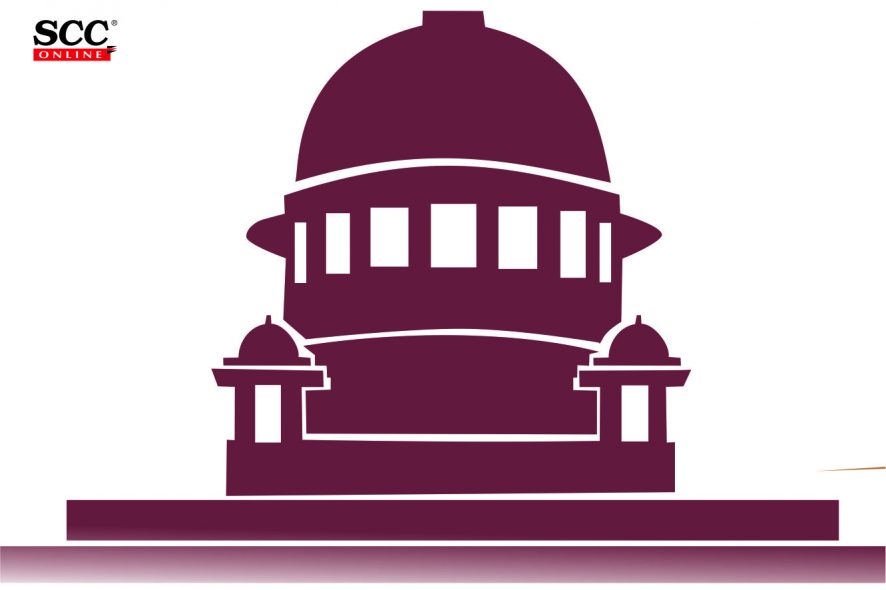Supreme Court: In the case relating to seniority of teachers appointed with Shri Samarth Shikshan Sansthan, the 3-judge bench of L. Nageswara Rao, Hemant Gupta and Ajay Rastogi, JJ has held that a person who neither a graduate nor a trained teacher at the time of his initial appointment cannot claim seniority over a someone possessing graduation and B.Ed degrees.
Background
The appellant, Madhavi, was appointed with Shri Samarth Shikshan Sansthan on a temporary basis on 16.7.1985. At that time, she possessed graduation and B.Ed. degrees and was accordingly placed in Category ‘C’ of Schedule ‘F’ of The Maharashtra Employees of Private Schools (Conditions of Service) Rules, 1981. However, she was not appointed against regular vacancy. Chagan was thereafter appointed as Assistant Teacher at the School on 1.8.1985 for teaching the students of Vth to VIIth standards, possessing qualification of Senior Secondary Certificate and Diploma in Education at the time of appointment. He was placed in Category ‘E’ of Schedule ‘F’ of the Rules. Both Madhavi and Chagan were appointed for teaching the same section. Later, Chagan acquired B.Sc. degree and entered Category ‘D’ of Schedule ‘F’ of the Rules on 21.2.1997. Chagan then obtained B.Ed. degree in the year 1999 and was thus placed in Category ‘C’ of Schedule ‘F’.
When Madhavi was appointed as the Head Master of the School, Chagan claimed that he was appointed on regular basis on 1.8.1985 as against Madhavi who was appointed against a temporary vacancy on 16.7.1985. Therefore, he is senior to her. Chagan claimed seniority as trained graduate w.e.f. 1.8.1985 in terms of Rule 6 read with Rule 2(1)(j) of the Rules. It was contended that the post of Secondary Teacher was not vacant in the year 1985, therefore, Madhavi was illegally appointed as Primary Teacher which is Category ‘E’ post whereas he was appointed on 1.8.1985 and thus, he is senior to Madhavi.
Analysis
The Court noticed that Chagan was only having senior secondary certificate and a Diploma in Education at the time of his appointment. With such qualifications, he was an under-graduate teacher falling in Category II(2)(i) or (ii) of Schedule ‘B’ of the Rules. Such teacher is assigned Category ‘E’ as per Schedule ‘F’. Clause II(1) of Schedule ‘B’, is in respect of teachers possessing graduate degrees. When Chagan qualified B.Sc. in 1997, he climbed the ladder and became part of Category ‘D’ and later on after acquiring B.Ed. degree, he entered Category ‘C’, whereas Madhavi was already in Category ‘C’ since the date of their appointment being graduates and degree holders in teaching i.e. B.Ed. Though she was appointed against a regular vacancy on 24.11.1988.
Explaining the Scheme of the Maharashtra Employees of Private Schools (Conditions of Service) Regulation Act and the Rules, the Court noticed that primary and secondary schools have been treated differently in the same set of Rules. Rule 2(e) has entrusted the duties of Education Officer or Education Inspector in relation to secondary or higher secondary school, whereas, the Education Officer in respect of a primary school is Education Officer or the Administrative Officer of the Municipal Corporation or a Municipal School Board. Similarly, Rule 3 prescribes different rules for appointment of a head of a primary school and the head of the Secondary School. Part I of Schedule ‘B’ prescribes qualifications for the appointment of teachers in Primary School, whereas Part II prescribes qualification for appointment of teachers in Secondary School and Junior colleges of Education. Chagan had joined Secondary School as an untrained undergraduate teacher. He therefore falls in Clause 2 of Part II of Schedule ‘B’. Similarly, Schedule ‘F’ deals with rule of seniority having different categories. Category ‘E’ is the lower-most level of the ladder which can be upgraded with improvements in the qualifications of the teachers.
Hence, the Court held that the High Court failed to appreciate the distinction between Clause 1 and Clause 2 of Schedule ‘F’ of the Rules.
It was, hence, concluded that Madhavi’s appointment was in accordance with Section 5(5) of the Maharashtra Employees of Private Schools (Conditions of Service) Regulation Act, 1977. However, Chagan could not be treated to be part of Category ‘C’ from the date of his initial appointment i.e. 1.8.1985 as he was neither a graduate nor a trained teacher when he was appointed. Also, Chagan was not even a trained teacher on the date of his appointment and thus cannot claim seniority on such ground from the date of his initial appointment.
[Madhavi v. Chagan, 2020 SCC OnLine SC 1007, decided on 09.12.2020]







Thanks for sharing this informative post. The Supreme Court’s decision on the seniority of employees with different qualifications is fair and just. It’s a good reminder of the importance of continuous service and transparent policies in the workplace.